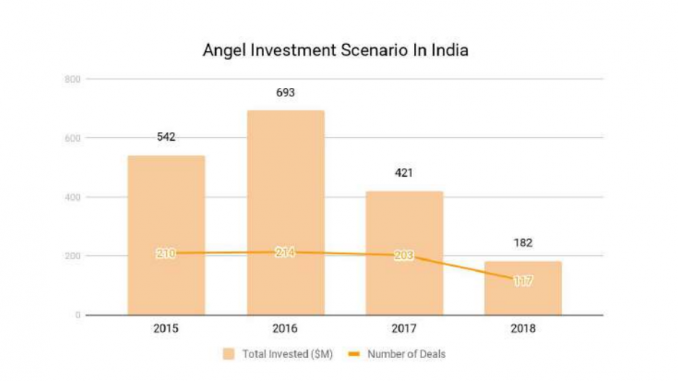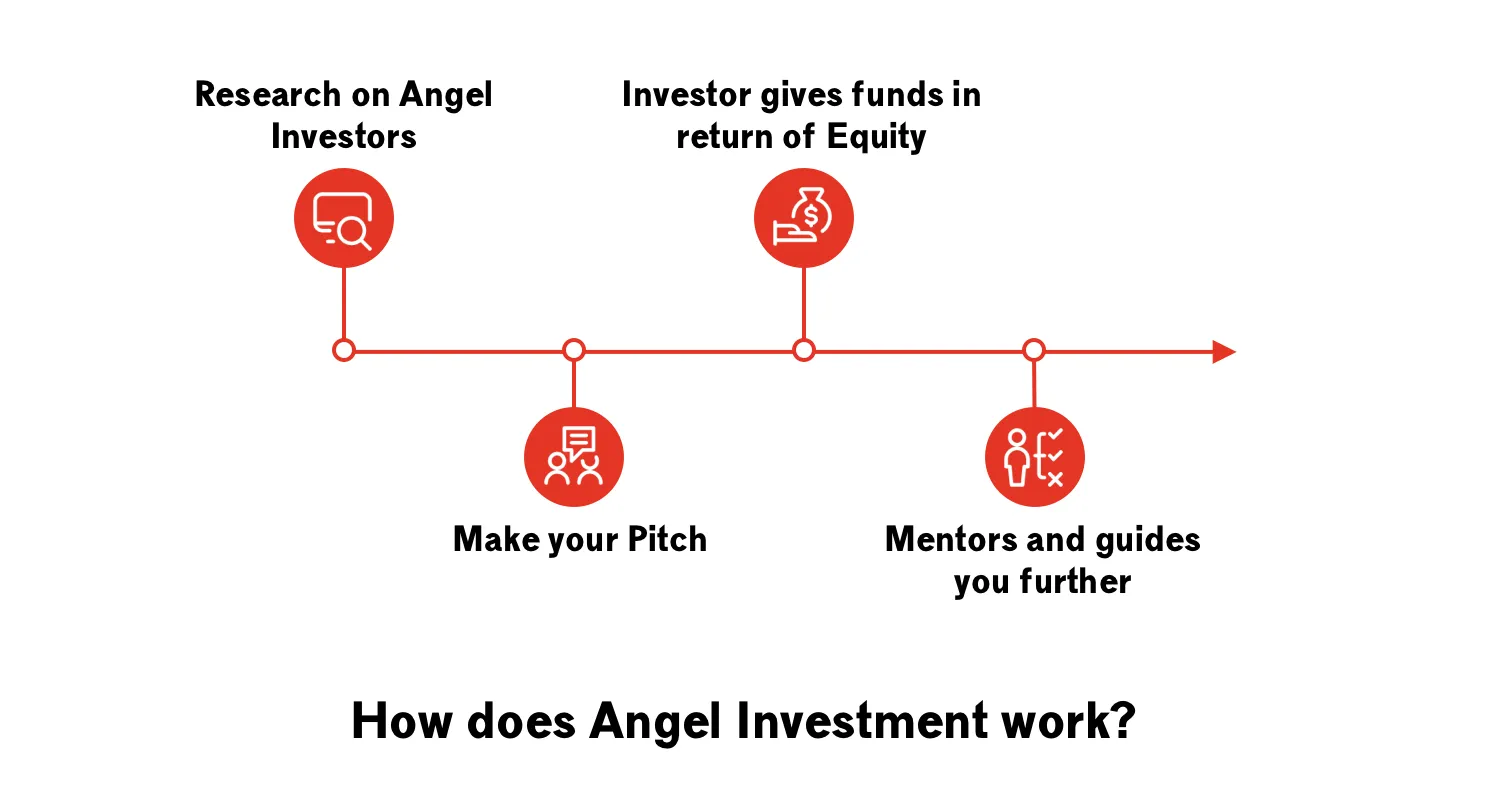
Beyond offering cash, angel investors can make the difference between getting a startup off the ground and burning it to death. The importance of the initial fund injection by an investor and their ability to validate the business model, build a pilot, and connect with the first customers is vital for an entrepreneur.
In a report, LetsVenture illustrates the number of deals angel investors made and the amount of funding they poured in.

According to a report by YourStory, $173 million were raised in Pre-Series A and angel rounds in 2018 by Indian startups.
While the number of deals and the amount invested may have decreased from 2015 to 2018, the hands-on experience and the access to a network still make angel investors invaluable for a startup.
This detailed guide shares everything you would want to know about getting angel investment in the Indian startup ecosystem.
What does an angel investor look for while investing in a startup?
For a first-time entrepreneur, raising capital from outside can seem daunting. Experienced angel investors are diligent in reviewing investment proposals. Despite numerous founders approaching them, every investor has certain boxes to check before they take interest in, inject money, or give their time to a startup.

#1. A dynamic market opportunity
This is the first question most investors will start with – “How big is the market your company is looking to cater to?”
This “big” includes the current scope as well as the future expansion. If you’re targeting an existing market, be prepared to answer how your offerings are different from the other players. If it’s an emerging market, focus on answering how big the market is expected to grow in the next few years and the growth drivers.
Rising tides lift boats. Angel investors are the first ones to place their bets on the new boats – the promising industries.
#2. The team’s ability to execute
A seasoned investor will be keen to know how well your team is positioned to create and execute the business idea and become the market leader.
The most common questions include:
- What is the domain expertise of your core team?
- Why are they considered authoritative figures in the market?
- Does the team have complementary skill sets?
- How is the chemistry between the team members?
- Do they work in sync with each other?
Highlight the strength of everyone on the team. Angel investors put their faith in the jockey and not on the horse. While the business idea may pivot over time, the team is responsible for the success or failure of the startup.
#3. Traction
One way to vet a de-risk investment opportunity is by looking at the momentum a company has gathered. This varies according to the company and the industry, and can be – revenue, channel partners, and the number of users or clients onboard.
This metric shows the investor that the market has already started engaging with your startup’s service or product and these users are providing feedback. Commercial traction gives you an upper hand over your competitors, who’re still in the laboratory.
Having real data to support your claims allows you to adjust the assumptions you started with. For an angel investor, it is a good measure of the progress made so far by the team.
#4. Investor relevance
Investor-fit is one of the most important parameters for an entrepreneur to consider while opting for an angel investor.
There are many checklists to be taken into consideration here, such as the stage of your company, the industry you’re targeting, and the investor’s experience in the relevant field.
Consider this to be a piece of the puzzle. When there are mutual connections between the investor and the founder, the investor is more likely to invest. Do your research before approaching them. This way, you will remove the ones from your list who’re not a good fit.
#5. The X-factor
There’s always a click moment between the investor and founder that affects the investment decision. Sometimes it’s as simple as affinity, based on the shared workplace, common background, college or a mutually trusted and known connection.
At other times, it is harder to find the cause as it could be as general as the likability of the founders or a gut feeling that’s hard to shake off.
It helps to be authentic and not salesy. Get to know the background of the investor to present any common connections out of the meeting.
While fundraising can be difficult, you can use these 5 points to engage with the angel investor. Often you won’t get the cheque immediately but then, even a second meeting is equivalent to having done a good job.
[“source=yourstory”]
